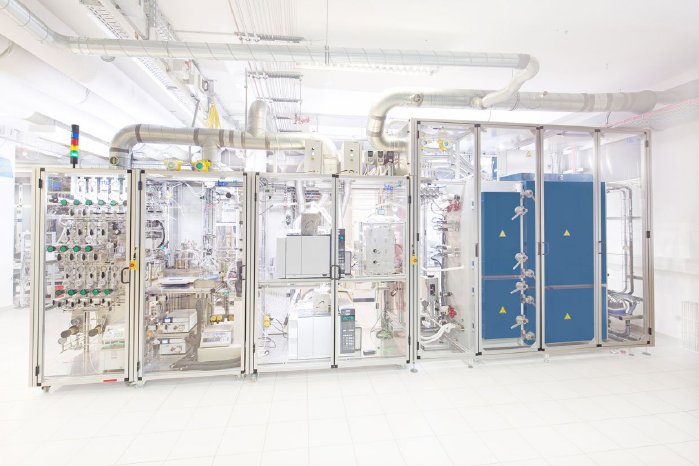hte has gained great expertise in the field of high throughput technology over the past 24 years through the successful development, design, construction, and operation of R&D technology solutions. hte’s flexible high-temperature units enable industrially relevant process conditions to be reproduced. In the case of reverse water-gas shift (rWGS), the test system combines high temperature with elevated pressure for accelerated catalyst testing.
The reverse water-gas shift process is an important emerging topic, enabling the smart integration of CO2 as a feedstock into existing petrochemical refineries. Renewable H2 and CO2 from industrial exhaust streams, biogas plants, or direct air capture can be converted to sustainable syngas, which can be utilized by conventional syngas conversion units followed by product upgrading toward fuels and chemicals.
hte was pleased to support and speed up the testing of metal-free rWGS catalysts developed by Matthew Kanan and his co-workers and is looking forward to further opportunities to investigate these materials in support of syngas applications.
“Three months of high throughput testing at hte provided data that would have taken many years to obtain in my lab,” said Matthew Kanan, Associate Professor of Chemistry at Stanford School of Humanities and Sciences. “We were very pleased with the performance of the metal-free rWGS catalysts and are excited to continue their development for scalable production of sustainable fuels.”
“Working together with universities on research projects is really important to us because we are able to speed up R&D processes with high throughput methods in an academic context. We understand the challenges of developing new catalysts and processes, and are committed to delivering innovative solutions and providing a significant advantage in achieving a short time to market,” comments Wolfram Stichert, CEO of hte.


